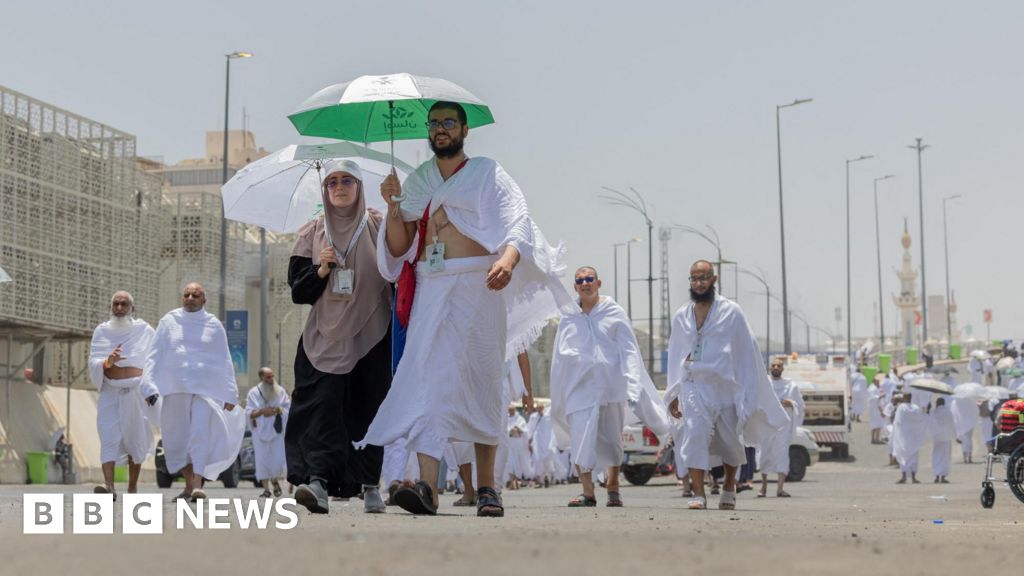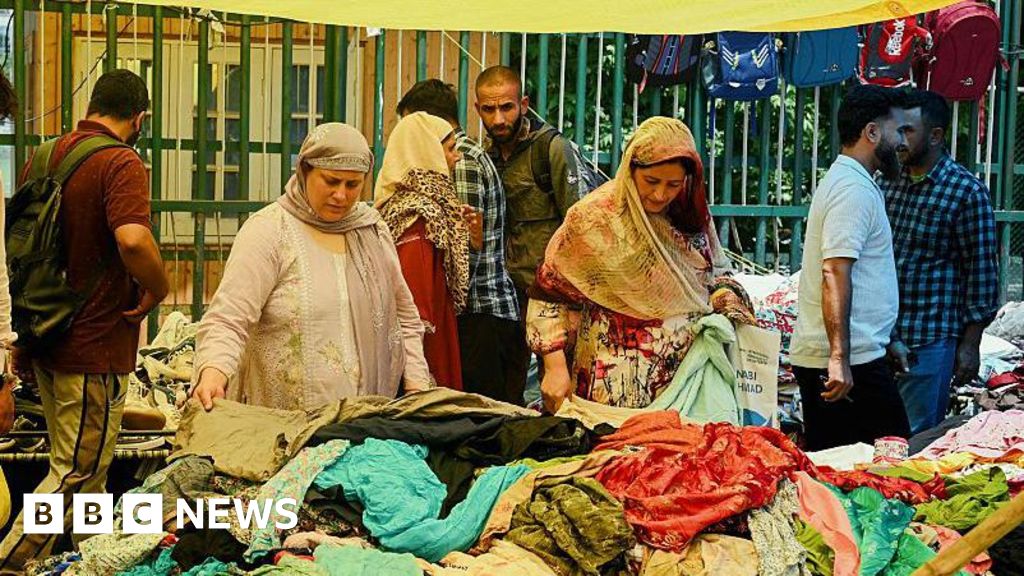[ad_1]
Donald Trump has said he will visit China after speaking to its leader Xi Jinping over the phone.
The US president said he had reciprocated with an invite to the White House during the “very good talk” – though such a trip has not been confirmed by either side.
Thursday’s call is the first time the two leaders have spoken since Trump launched a trade war with Beijing in February. Chinese state media reported that the call happened at the White House’s request.
Trump wrote on social media that the hour-and-a-half conversation was primarily focused on trade and had “resulted in a very positive conclusion for both countries”.
“He invited me to China and I invited him here,” Trump said of the call with Xi while meeting German Chancellor Friedrich Merz in the Oval Office.
“We both accepted, so I will be going there with the first lady at a certain point and he will be coming here hopefully with the first lady of China.”
The Chinese readout of the conversation mentioned the its invitation but not the reciprocal one to the White House.
According to Chinese state news agency Xinhua, Xi reportedly told Trump that the US should “withdraw the negative measures it has taken against China”.
The Chinese leader was also said to have told Trump that China always kept its promises and since a consensus had been reached, both sides should abide by it – a reference to a recent deal between the two nations struck in Geneva.
Both sides have accused the other of breaching the deal aimed at dramatically reducing trade tariffs – a deal Trump touted as a “total reset”.
It came after Trump raised tariffs on imports from a number of countries, but reserved the highest rates for China. Beijing responded with its own higher rates on US imports, sparking tit-for-tat increases that peaked at 145%.
The tentative truce struck in May brought that US tariff on Chinese products down to 30%, while Beijing slashed levies on US imports to 10% and promised to lift barriers on critical mineral exports.
The agreement gave both sides a 90-day deadline to try to reach a trade deal.
But since then, talks have seemed to grind to a halt amid claims on both sides that the deal had been breached.
The US has accused China of failing to restart shipments of critical minerals and rare earth magnets vital to car and computer industries.
The Chinese Ministry of Commerce has denied the claims and accused the US of undermining the deal by introducing new restrictions on computer chips.
Trump introduced new export restrictions on semiconductor design software and announced it would revoke the visas of Chinese students.
The US president said following the call that “there should no longer be any questions respecting the complexity of Rare Earth products”.
He told reporters in the White House: “Chinese students can come, no problem, no problem – its an honour to have them frankly. But we want to check them.”
Chinese state media reported that Xi warned Washington that it should handle Taiwan “with caution” to avoid conflict, just days after US Defence Secretary Pete Hegseth said China posed an “imminent” threat to the self-governed island.
Hegseth told the Shangri-la Dialogue in Singaport that Beijing was “credibly preparing to potentially use military force to alter the balance of power”.
China sees Taiwan as a breakaway province that will eventually be reunified, and has not ruled out the use of force to achieve this. The US supports Taiwan militarily but does not officially recognise it due to the “One China” policy.
According to the readout of Thursday’s call given to Chinese media, Xi stressed that the US should handle the “Taiwan issue prudently to prevent a small number of Taiwan Independence separatists from dragging China and the US into a dangerous situation of conflict and confrontation”.
The call between Trump and Xi is long awaited and comes after months of silence between the two leaders.
The White House has touted the possibility they might talk from week one of Trump’s presidency – and earlier this week he finally vented his frustration on social media.
Trump wrote: “I like President Xi of China, always have, and always will, but he is VERY TOUGH, AND EXTREMELY HARD TO MAKE A DEAL WITH!”
Trump has made it clear that he likes to be involved in negotiations. But this is not the way China does business.
Beijing prefers to appoint a negotiating team led by a trusted official. Any calls or meeting between heads of state are usually thoroughly planned and highly choreographed.
The Chinese will also not want to be seen to bend to Washington’s demands.
[ad_2]
Source link



